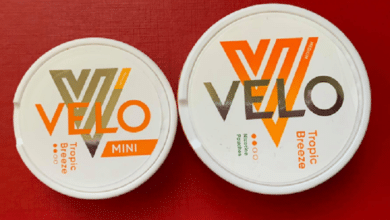New Medicals: Revolutionizing Healthcare with Cutting-Edge Innovations

In the fast-paced world of healthcare, innovation plays a pivotal role in shaping the future of medicine. With advancements in technology and research, new medicals are constantly emerging, revolutionizing the way we approach diagnosis, treatment, and patient care. This article explores the exciting realm of new medicals, highlighting their impact on healthcare and the benefits they bring to both patients and healthcare providers.
Understanding New Medicals
Definition and Scope
New medicals refer to the latest advancements in medical technology, research, and healthcare practices. These innovations encompass a wide range of fields, including biotechnology, information technology, robotics, and genetics. New medicals are designed to improve patient outcomes, enhance diagnostic accuracy, streamline healthcare processes, and empower healthcare professionals.
Role in Advancing Healthcare
The integration of new medicals has the potential to revolutionize healthcare delivery and bring about transformative changes. These innovations enable healthcare providers to deliver more precise and personalized care, leading to better treatment outcomes and improved patient experiences. New medicals also have the capacity to optimize resource utilization, reduce healthcare costs, and enhance overall efficiency in healthcare systems.
Key Innovations in New Medicals
Artificial Intelligence and Machine Learning
Artificial intelligence (AI) and machine learning (ML) are at the forefront of new medical advancements. AI algorithms can analyze vast amounts of medical data, assist in accurate diagnosis, predict disease outcomes, and provide personalized treatment recommendations. ML algorithms continuously learn from data, leading to refined and optimized medical practices.
Robotics and Automation
Robotic technologies have revolutionized surgical procedures, enabling minimally invasive surgeries, precise interventions, and faster recovery times. Robots can perform complex tasks with high precision, reducing the risk of errors and improving surgical outcomes. Automation in healthcare settings also streamlines administrative tasks, freeing up healthcare professionals’ time for more direct patient care.
Genomics and Personalized Medicine
The field of genomics has opened new avenues for personalized medicine. Genetic testing and analysis provide insights into an individual’s genetic makeup, helping healthcare providers tailor treatment plans based on the patient’s unique genetic profile. Personalized medicine holds the promise of more targeted and effective treatments, reducing adverse drug reactions and improving patient outcomes.
Telemedicine and Remote Monitoring
Telemedicine has gained significant traction, especially in the wake of the COVID-19 pandemic. It allows patients to receive medical consultations and care remotely, eliminating the need for in-person visits. Remote monitoring devices enable healthcare professionals to track patients’ vital signs, detect anomalies, and intervene proactively, leading to early interventions and reduced hospitalizations.
Nanotechnology and Biomedical Engineering
Nanotechnology plays a crucial role in developing advanced medical devices and drug delivery systems. Nanomaterials enable targeted drug delivery, enhancing the effectiveness of treatments while minimizing side effects. Biomedical engineering integrates engineering principles with medical sciences to create innovative solutions for diagnosing, treating, and rehabilitating patients.
Impact on Healthcare Delivery
Enhanced Accuracy and Efficiency in Diagnosis
New medicals offer improved diagnostic capabilities, facilitating early detection and precise identification of diseases. AI-powered imaging techniques can identify subtle anomalies that may be overlooked by human observers, enabling timely interventions and potentially life-saving treatments. Automation in diagnostic processes also enhances efficiency, reducing waiting times and enabling prompt patient management.
Improved Treatment Options and Outcomes
The integration of new medicals expands the range of treatment options available to healthcare providers. Personalized medicine allows tailored treatments based on individual patient characteristics, increasing treatment efficacy and minimizing adverse reactions. Robotic surgeries, enabled by new medical technologies, offer enhanced precision, leading to improved surgical outcomes and faster patient recovery.
Streamlined Patient Care and Monitoring
Telemedicine and remote monitoring have transformed the way patients access healthcare services. Virtual consultations eliminate geographical barriers, enabling patients in remote areas to receive expert medical advice. Remote monitoring devices enable continuous tracking of vital signs, ensuring timely interventions and personalized care. These advancements streamline patient care, reduce unnecessary hospital visits, and improve overall patient experiences.
Empowering Healthcare Professionals
New medicals empower healthcare professionals by augmenting their skills and capabilities. AI algorithms assist in diagnosis and treatment planning, enabling physicians to make well-informed decisions. Robotic assistance in surgery enhances surgical precision, reduces fatigue, and expands the surgeon’s capabilities. By automating administrative tasks, healthcare providers can allocate more time and attention to direct patient care, strengthening the doctor-patient relationship.
Challenges and Ethical Considerations
Data Security and Privacy
With the increasing use of new medicals, ensuring data security and patient privacy becomes paramount. Robust security measures must be implemented to protect sensitive medical information from unauthorized access or data breaches. Encryption, access controls, and adherence to privacy regulations are vital to maintaining patient trust and confidentiality.
Regulatory Compliance and Safety
New medicals often require regulatory approvals to ensure their safety, efficacy, and compliance with healthcare standards. Robotic and AI-enabled systems must undergo rigorous testing and validation before being used in patient care. Adhering to ethical guidelines and regulatory frameworks ensures patient safety and prevents potential harm arising from the use of new medical technologies.
Cost and Accessibility
While new medicals hold immense potential, their cost and accessibility remain significant challenges. The high development and implementation costs can limit their availability, particularly in resource-constrained settings. Addressing cost-effectiveness and ensuring equitable access to new medical technologies are crucial for achieving widespread benefits and reducing healthcare disparities.
Ethical Use of Technology
The ethical use of new medicals is an important consideration. Ensuring that AI algorithms are transparent, explainable, and free from bias is essential to maintain trust in their decisions. The responsible use of robotic technologies and automation should prioritize patient safety, informed consent, and the preservation of human dignity throughout the healthcare journey.
Future Prospects and Trends
Integration of Artificial Intelligence
Artificial intelligence will continue to shape the future of new medicals. AI algorithms will become more sophisticated, aiding in accurate diagnosis, treatment planning, and predictive analytics. Machine learning will enable the discovery of patterns and insights from vast amounts of healthcare data, fostering evidence-based medical practices.
Expansion of Telemedicine Services
Telemedicine is poised for significant growth in the coming years. As technology advances and regulatory frameworks adapt, telemedicine services will become more widespread and integrated into healthcare systems. Remote consultations, virtual monitoring, and digital health platforms will enable convenient access to healthcare, particularly for underserved populations.
Advancements in Personalized Medicine
The field of personalized medicine will continue to evolve, with advancements in genomics, molecular diagnostics, and targeted therapies. Precision medicine will become increasingly tailored to individual patients, taking into account their genetic, environmental, and lifestyle factors. This personalized approach will enhance treatment outcomes and optimize healthcare interventions.
Targeted Drug Delivery Systems
Nanotechnology will play a crucial role in developing targeted drug delivery systems. Nanoparticles and nanoscale devices can deliver medications directly to diseased tissues, minimizing side effects and increasing drug efficacy. These advancements will revolutionize drug delivery, enabling more precise and efficient treatments.
Conclusion
New medicals are transforming the landscape of healthcare, ushering in a new era of precision, efficiency, and patient-centric care. The integration of innovative technologies such as AI, robotics, genomics, and telemedicine is revolutionizing diagnosis, treatment, and patient monitoring. While challenges and ethical considerations exist, the future prospects for new medicals are promising. By embracing these advancements responsibly and ensuring equitable access, we can harness the full potential of new medicals to improve health outcomes and enhance the overall well-being of individuals and communities


